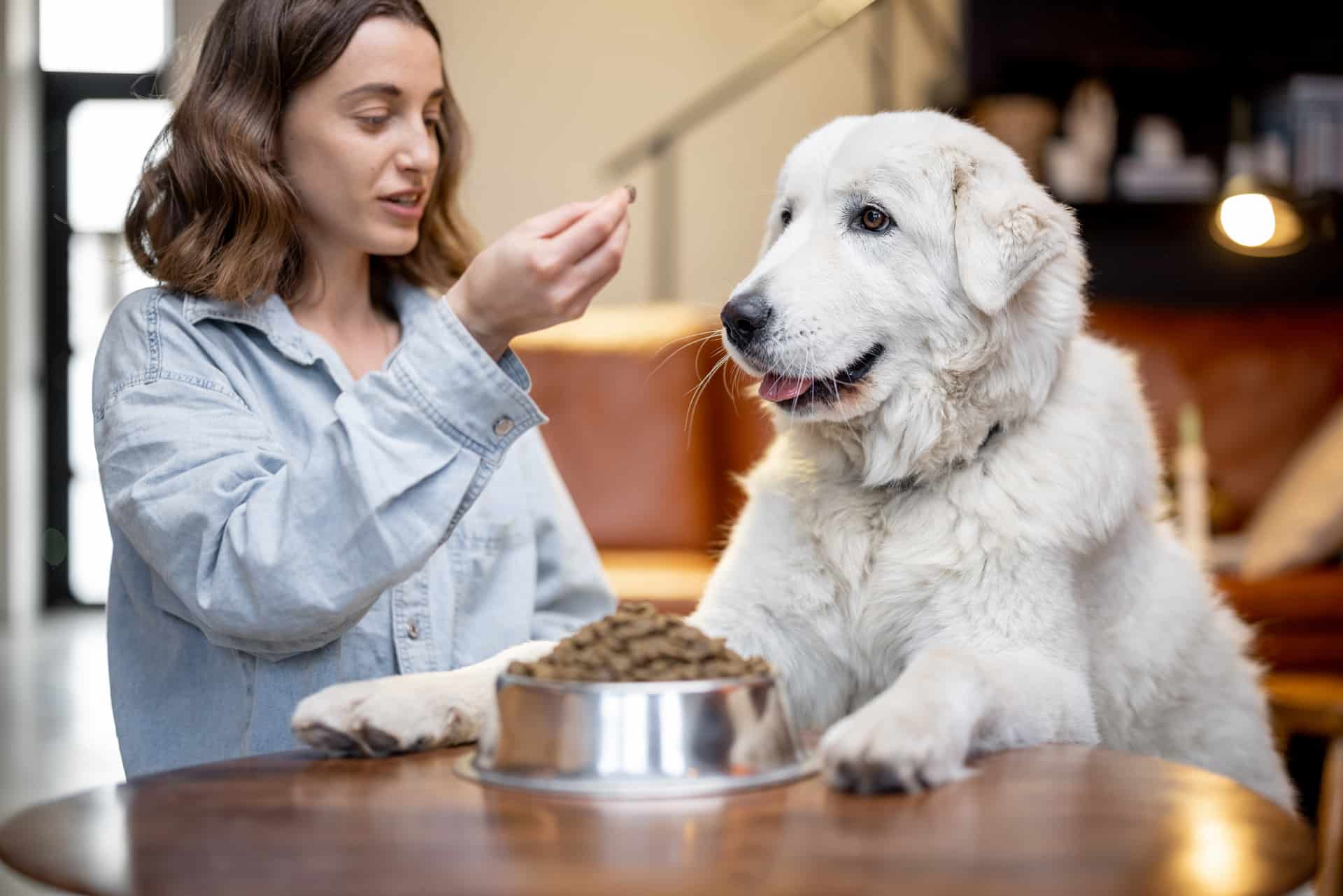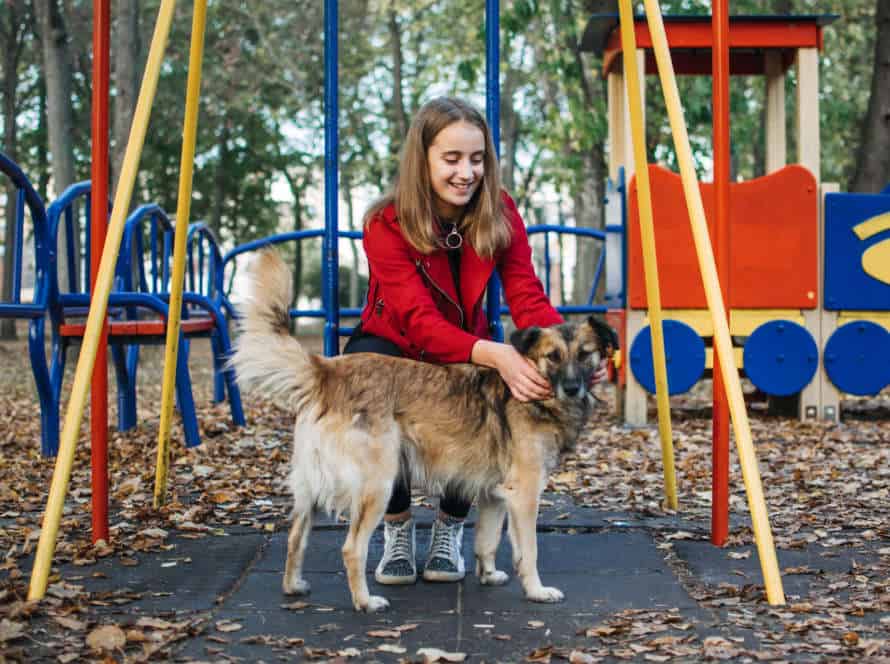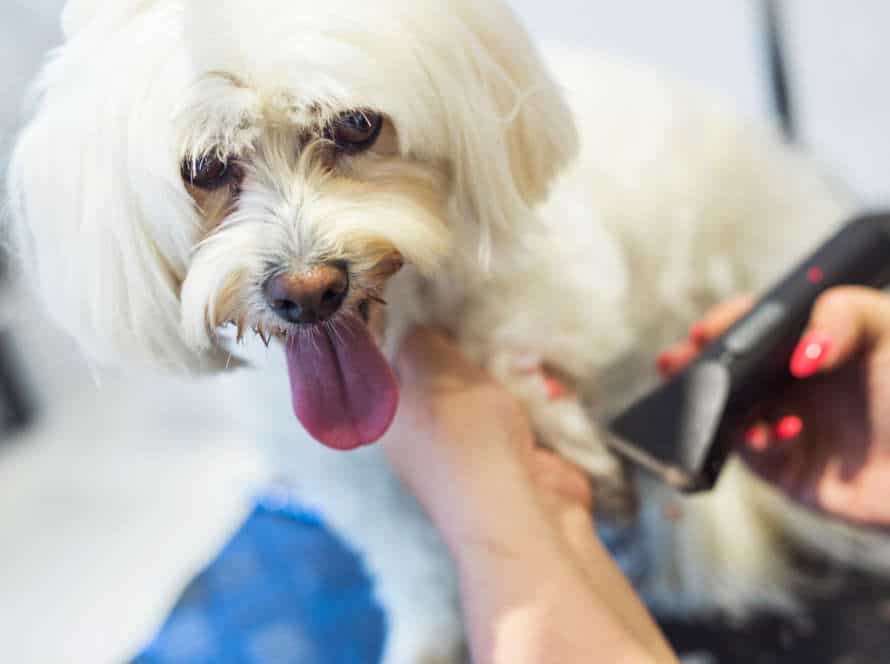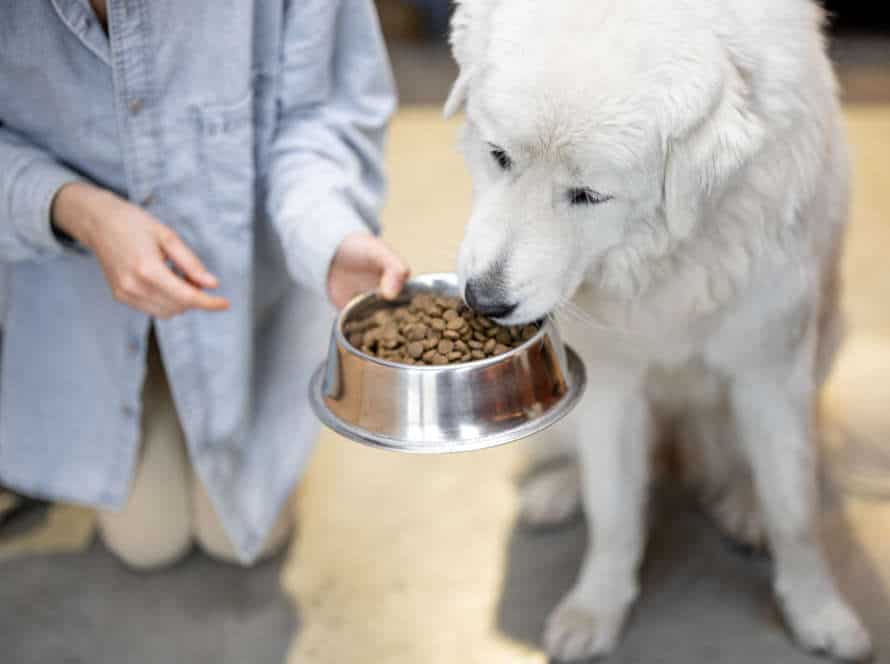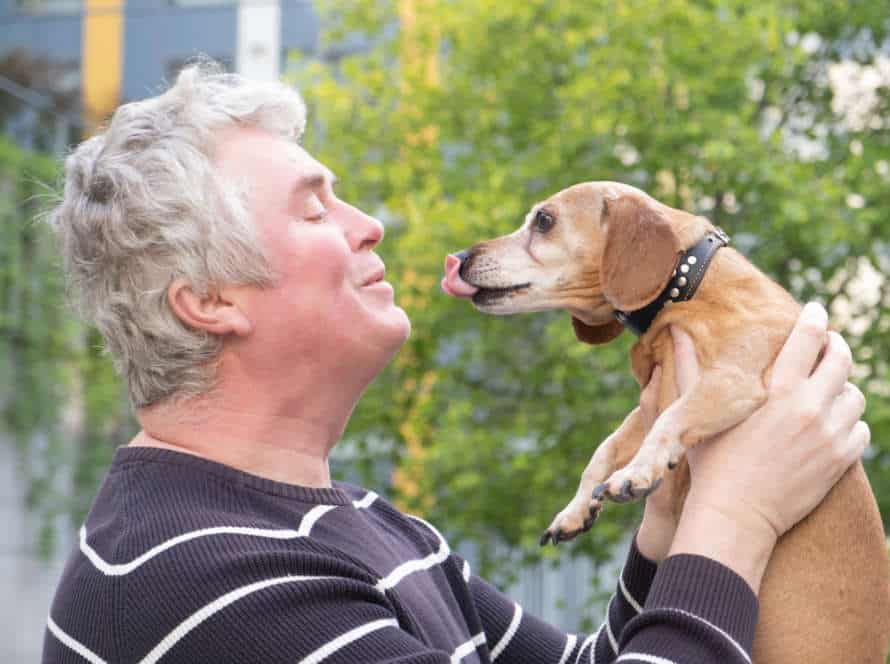Understanding Your Adult Dog’s Nutritional Needs
Adult dogs have special dietary necessities. Knowing them is key for keeping Fido fit and jolly. With the correct diet and nutrition, you can grant your dog the vitamins and minerals it needs. Let’s investigate what your grown-up pup needs and how to craft a diet that satisfies its nutritional needs.
Identifying your dog’s breed-specific nutritional requirements
It’s essential to know your dog’s breed-specific nutritional requirements. This helps make sure they’re getting enough to stay healthy and avoid diseases.
To figure this out, there are a few things to think about:
- Breed size – small dogs vs. big dogs
- Body condition – health issues like obesity or allergies
- Age – may need different nutrition at different times
- Activity level – active dogs need more calories
Consult your vet to know exactly what your pup needs. Plus, add fresh fruits and veggies for extra nutrients and variety!
How your dog’s age and weight can affect its feeding routine
Age and weight of your pup are vital for deciding its eating schedule and its nourishing needs. As dogs grow old, their metabolism changes and activity reduces, which affects their diet. Here are some factors for your adult dog’s feeding routine:
- Age: Older dogs need fewer calories to keep healthy. Their energy drops and their muscles and joints become more delicate. So, you must pick food made for elderly dogs.
- Weight: If your pooch is overweight or very overweight, it’s important to watch its food intake and what type of food it eats. Obesity causes health problems such as diabetes, joint issues, breathing problems and even cancer. Talk to your vet to make an eating routine that helps maintain healthy weight.
- Activity Level: Your pup’s activity level should also inform its eating routine. Dogs that are active and burn many calories, like working dogs, may need diets with higher calories than more relaxed pups.
Don’t forget to talk to the vet to make a balanced diet and eating routine that meets your pup’s special dietary needs.
Signs your dog might have food allergies or sensitivities
Is your pup constantly scratching or itching? Or maybe they have digestive issues or ear infections? These might be signs of food allergies or sensitivities! Here are some other signs to look out for:
- Paw, face, or body parts being licked, scratched, or itched often.
- Chronic ear infections or itchy ears.
- Vomiting, diarrhea, or gas.
- Skin rashes, hives, or hot spots.
- Coughing, sneezing and wheezing.
If you think your dog might have food allergies or sensitivities, consult your vet. An elimination diet could help pinpoint which foods are causing these issues.
Types of Dog Food to Consider
When feeding adult dogs, consider the options. From dry to wet food, there’s plenty to choose from. Each type has advantages and disadvantages. Let’s examine the pros and cons of various dog foods. This will help decide which is best for your pooch!
Dry kibble vs. wet/canned dog food
As a pet owner, selecting the right food for your adult canine can be testing. You must pick between wet/canned or dry kibble. Each has its ups and downs. Your pick should depend on your pet’s wellbeing, age, and dietary needs.
Dry Kibble: Has less water, so it’s perfect for dogs with healthy teeth and gums. It’s also convenient, more affordable, and has a longer shelf life.
Wet/Canned Food: This type has high moisture content, so it’s great for pooches who don’t drink enough water, have dental issues, or difficulty chewing. It’s also loaded with animal protein, making it more appetizing to dogs.
Mixing both types of dog foods is ideal. However, it’s vital to consult your vet first to figure out the proper ratios and feeding schedule.
Pro Tip: Focus on the ingredients instead of the type of dog food. Search for dog food with high-quality, whole-food based ingredients. Avoid those with added preservatives or fillers.
Homemade dog food: making it work for your dog
Selecting the ideal kind of dog food can be tough for pet owners. Homemade dog food is a great alternative – but make sure it’s suitable for your pup’s special nutritional needs.
Think about these types of dog foods when making homemade meals:
- Protein: Dogs need protein from animals (e.g. chicken, beef, fish) for healthy muscles.
- Veggies & Fruits: These give essential vitamins, minerals & fiber for the digestive & immune system.
- Carbs: Dogs need carbs from whole grains (e.g. brown rice, quinoa) for energy & fiber.
- Fats: Fats from animals & plants (e.g. fish oil, olive oil) are necessary for energy & healthier skin & coat.
- Calcium: Adequate calcium levels are essential for canine bone & teeth health.
Speak to your vet to work out the correct portions & ratios for your dog’s dietary needs.
Raw food diet: pros and cons
A raw food diet for dogs is a trend. It involves feeding them raw meat, bones, and organs. Potential benefits exist and some drawbacks too.
Pros:
- Chewing raw meat and bones can improve dental health.
- A shinier coat and healthier skin.
- Increased energy and stamina.
Cons:
- Raw meat can cause bacterial infections. This can be a problem for both the dog and family.
- Nutritional imbalances. It’s hard to provide a well-rounded diet without supplements.
- Choking and GI issues from bones.
Before switching to this diet, research and consult with a vet.
Pro Tip: Handle raw meat and bones carefully to avoid spreading bacteria and harming either yourself or your dog.
How to Choose a High-Quality Dog Food
Choosing the ideal food for your adult pup is a must. Not all doggy foods are equal. It’s important to make sure you’re giving your pup high-quality grub. To determine which dog food is suitable for you, look at key ingredients, nutritional value and the brand’s reputation. This will help you give your pup the best nutrition possible.
Importance of checking the ingredient list and nutritional content
Checking your pup’s food for the ingredient list and nutritional content is a must. Here’s why:
- Transparency: You’ll know what ingredients go into your dog’s food and avoid any fillers, preservatives, and chemicals that can harm them.
- Nutritional Value:You’ll know if their diet is meeting their needs and if it’s high in protein and low in carbs.
- Special Dietary Needs: Allergy or health conditions? Look at the ingredient list to see what needs to be avoided. You can also find food that meets their specific needs.
In short, it’s super important to check what your pup eats. Speak to your vet to get the best advice on the right food for them.
Recommended daily calorie and nutrient intake
Know your daily calorie and nutrient intake to stay healthy. Similarly, your adult dog needs the same. It depends on their age, weight and activity level.
For dogs under 20 pounds, 600-800 calories daily with 15-25% protein, 30-70% fat, and 20-40% carbs.
For dogs between 20-50 pounds, 800-1,400 calories with 15-30% protein, 20-45% fat and 30-70% carbs.
For dogs over 50 pounds, 1,400-2,200 calories with 15-25% protein, 10-20% fat, and 40-60% carbs.
Consult your vet to understand exact requirements. Choose a balanced and nutritious diet. Check the ingredients label. Avoid fillers, artificial preservatives, and by-products.
Seeking veterinarian advice
It is vital to get a vet’s advice when figuring out the best food to give your mature dog. Here’s why: Vets have special know-how of pet nutrition. They can point out any health risks or diet needs. They can suggest quality dog food that’s suitable for your pup’s age, breed, size, and health condition. Plus, they can suggest portion sizes and frequency. Consulting a vet is key to making sure your dog is healthy and happy.
Pro Tip: Always ask a vet before making drastic diet changes.
Feeding Your Adult Dog Effectively
Feeding your adult pooch needs you to be acquainted with their individual needs as well as the food types that will give them a nutritionally balanced diet. It’s tricky to know how much and how often to feed them, but by understanding the fundamentals of canine nutrition and feeding, you can guarantee they get the most out of their chow. Let’s consider what factors to ponder when nourishing your adult doggo.
How often to feed your dog
Feeding frequency for dogs varies according to their age, size, and activity level. Adult dogs usually require one or two meals per day. This depends on the breed’s size and metabolism. Smaller breeds with a higher metabolism might need more frequent meals. But, bigger breeds with a slow metabolism can benefit from fewer, larger meals during the day.
Other things to consider when deciding a feeding plan are activity level, overall health, and any medical conditions. It’s best to talk to a vet to decide the best feeding schedule for your pooch. Also, make sure your dog’s diet is balanced with protein, carbs, and healthy fats. Plus, give your pup fresh water regularly.
Pro tip: Don’t feed your dog table scraps, especially those with high-fat content as they can cause obesity and other health issues.
Portion control: measuring your dog’s food for optimal health
It’s key to have proper portion control when it comes to adult dog health. Before you make any changes to the diet, ask a vet for their professional advice. Here are some helpful tips to measure food correctly:
- Use a standard measuring cup for scooping. Don’t use a coffee cup, as it can be inaccurate.
- Calculate the daily calorie intake based on age, weight, and activity level.
- Divide the daily calorie intake by the number of meals each day. This is the recommended calorie intake per meal.
- Measure the recommended calorie intake for each meal with a measuring cup.
- Change the amount of food based on the dog’s weight gain or loss.
Measuring your dog’s food is very important to prevent obesity-related health issues. Pro tip: Write a food diary for your dog to track the calories and monitor their weight better.
Keeping your dog hydrated: water intake and availability
It is key for your dog’s health and wellbeing to stay hydrated. This depends on their age, size, activity level and the weather. Make sure to always give them fresh and clean water to prevent dehydration and health issues. Here are some tips:
- Make sure your dog always has access to fresh water.
- Keep an eye on their water intake and adjust it, depending on their activity level and the weather.
- Provide them with water often, mainly after working out or being in the heat.
- Maybe get a pet water fountain to encourage them to drink more.
By following these tips, you’ll make sure your furry pal stays hydrated and healthy.
Special Considerations
Selecting the right diet for your adult dog is important. Look at the food’s ingredients, nutrients, and potential dietary deficiencies. Also, pick food for your adult dog’s specific needs. Consider age, size, lifestyle, and health. Let’s review the special considerations for choosing a good food for your adult pooch!
Foods to avoid feeding your adult dog
It’s important to give your adult dog a balanced and nutritious diet. But, you should avoid certain foods as they can be harmful. Here are some of them:
- Chocolate, Coffee and Caffeinated Beverages: These have theobromine and caffeine which can cause vomiting, diarrhea, seizures, and even death.
- Grapes and Raisins: These can lead to kidney failure in dogs.
- Onions, Garlic, and Chives: These can cause anemia and damage red blood cells.
- Avocado: The fruit and pit contain persin which can cause vomiting and diarrhea.
- Alcohol: Even a small amount can be fatal and cause vomiting, difficulty breathing, and even death.
- Xylitol: This artificial sweetener can cause liver failure and hypoglycemia in dogs.
Supplementing your dog’s diet with vitamins and minerals
Giving your pup vitamins and minerals is a must for its health and happiness. However, always chat with your vet before adding anything to their diet. Some of the key vitamins and minerals for dogs include:
- Vitamin A – for healthy skin, coat and vision.
- Vitamin D – for bones and teeth.
- Vitamin E – as an antioxidant and to stop cell damage.
- Calcium – to keep bones and teeth strong.
- Iron – to make red blood cells and help oxygen move around the body.
Remember to give the right dose and pick a good quality supplement made just for dogs. Pro Tip: A balanced diet with all the essential nutrients is the best way to keep your pup healthy and happy.
Dealing with overfeeding or underfeeding your dog.
Overfeeding and underfeeding your pup can cause health issues and impact their quality of life. Here’s what you need to know.
- Overfeeding: This can lead to obesity and raise the odds of diabetes, heart disease, and joint troubles. If your pup is overweight, trim their food portions and give them more exercise. Don’t give them leftovers or calorie-rich treats.
- Underfeeding: This can cause malnutrition, low energy levels, and a dull coat. If your pooch is underweight, get a vet check to rule out medical conditions. Increase their food portions slowly and go for nutritionally-rich food. Supplements like fish oil or vitamins could be helpful too.
Keep an eye on your pup’s weight and condition. Adjust their food portions if needed and shower them with love and activity.
Frequently Asked Questions
1. How often should I feed my adult dog?
A: You should feed your adult dog twice a day, ideally at the same time each day.
2. What type of food should I feed my adult dog?
A: You should feed your adult dog a high-quality commercial dog food that contains all of the essential nutrients your dog needs.
3. Can I give my adult dog table scraps as a treat?
A: It is not recommended to give table scraps to your adult dog as they can cause digestive problems and lead to obesity.
4. How much should I feed my adult dog?
A: The amount you should feed your adult dog will depend on their size, age, and activity level. Consult with your veterinarian to determine the appropriate portion size for your dog.
5. Should I give my adult dog supplements or vitamins?
A: Your dog’s diet should provide all of the essential nutrients they need, so supplements or vitamins are usually unnecessary. Consult with your veterinarian if you are concerned about your dog’s nutrient intake.
6. Can I switch my adult dog’s food?
A: If you need to switch your adult dog’s food, do so gradually over a period of several days to avoid upsetting their digestive system. Mix a small amount of the new food with their current food, gradually increasing the amount of new food until they are eating only the new food.

